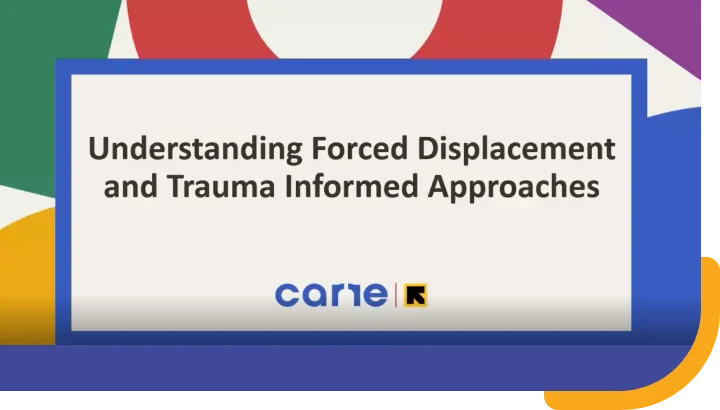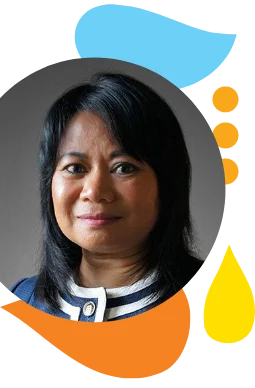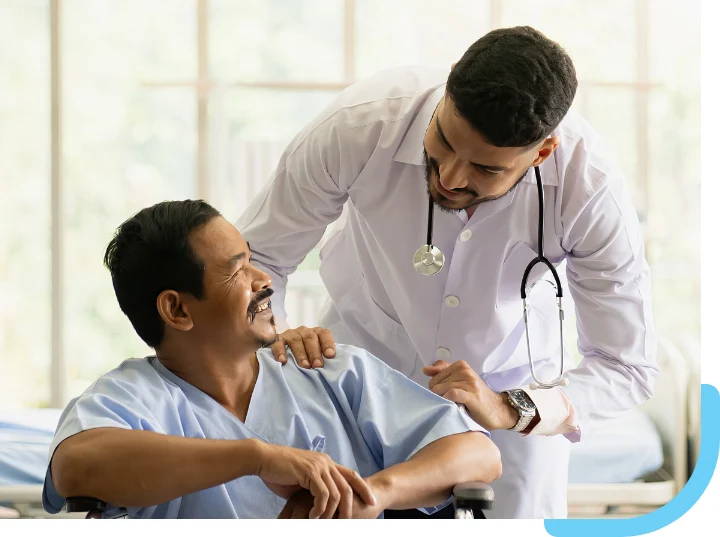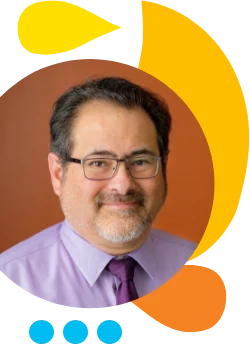Community Health Plan of Washington (CHPW) was founded in 1992 by Washington’s community health centers. CHPW is committed to Washington's health. To enroll in a Community Health Plan of Washington Apple Health (Medicaid), Medicare Advantage, or Individual & Family Cascade Select plan, you must be eligible and live in the service areas. This is not a complete description of benefits. Please contact us for more information.


2024 Annual Power of Community Report
Table of Contents
Empowering Our Health Care Providers Through Education, Dialogue, Training

In 2024, Washington State launched a new state program called Apple Health Expansion. This program provides Medicaid-like health insurance coverage to low-income adults who are ineligible for other Apple Health programs due to immigration status. Washingtonians with undocumented status also became eligible for the first time to buy private health plans through Washington Healthplanfinder, the state’s health insurance marketplace. CHPW was among the managed care organizations (MCOs) approved by the Washington State Health Care Authority (HCA) to offer Apple Health Expansion to enrollees.
Recognizing that health care providers directly shape health outcomes and are a critical ally in CHPW’s mission to improve health outcomes, CHPW is equipping them with vital resources, training, and support so they can deliver personalized care to diverse communities more effectively.
CHPW brought in several trusted experts to lead educational training sessions for providers and staff ahead of the Apple Health Expansion launch.
Taking an informed approach
CHPW collaborated with the International Rescue Committee (IRC) to host two webinars on “Understanding Forced Displacement and Trauma-Informed Approaches.” IRC is a humanitarian organization that provides aid to refugees and those who have been forced to leave their homes due to conflict, violence, or other causes. These individuals and families come to the U.S. with a variety of unique needs due to past traumatic experiences, pressured adaptation, complex systems, and, for some, lack of permanency due to immigration status, said IRC’s Beth Farmer, the main presenter.
“Immigration status type and migration history introduce many, many risk factors that we as service providers may not normally consider,” said Farmer, who is a Licensed Clinical Social Worker with more than three decades of experience in providing services to people who have experienced trauma.

 |


We wanted to equip our provider networks and staff with crucial knowledge and skills to deliver the highest quality of care for the immigrant and refugee populations.
Connie Mom-Chhing
CHPW Senior Director of Regional Systems Integration
Leveraging expertise
Connie Mom-Chhing, CHPW Senior Director of Regional Systems Integration, said the intent of the webinar trainings was to help CHPW providers offer care that embodies compassion, cultural sensitivity, and understanding in every interaction.
“We wanted to equip our provider networks and staff with crucial knowledge and skills to deliver the highest quality of care for the immigrant and refugee populations,” said Mom-Chhing.
“It was also an opportunity for CHPW to leverage the expertise of one of our community-based partners, the IRC, to deliver this training, as they are on the ground providing services to this population.”
Each session was attended by more than 100 participants. In addition to Community Health Center (CHC) staff and other providers, attendees included representatives from community organizations, school districts, and public health agencies.

The importance of culturally responsive care
CHPW also engaged Gino Aisenberg, Ph.D., M.S.W., an associate professor at the University of Washington School of Social Work and a bilingual/bicultural Latino mental health researcher, to talk to providers and CHPW staff about the importance of understanding different cultures, backgrounds, and traditions when delivering care to immigrant and refugee populations.
Aisenberg, who is also the founding co-director of the Latino Center for Health at UW, conducted his webinars in English and Spanish.
Understanding ‘cultural context’
The U.S. health care system is complex for most of us but can be especially daunting for someone who hasn't grown up in this country, Aisenberg told providers.
He stressed that health care workers must strive to understand both the culture of the individual's country of origin and the immigrant or refugee experience.
In medicine, “evidence-based practices historically have been standardized and normed with white, non-Latino adult populations, void of cultural context and realities,” Aisenberg said.
“We have this model that we sweepingly apply to all people, regardless of their history, their race, ethnicity, their environmental contexts. That doesn't appear to me to be good practice.”


We have this model that we sweepingly apply to all people, regardless of their history, their race, ethnicity, their environmental contexts. That doesn't appear to me to be good practice.
Gino Aisenberg, Ph.D., M.S.W.
University of Washington School of
Social Work Associate Professor

Broadening access to expert knowledge
CHPW also supported its network of primary care providers by expanding access to specialist consultations.
We deepened our collaboration with MAVEN (Medical Alumni Volunteer Expert Network) Project, a nonprofit organization that focuses on providing accessible, high-quality health care services to underserved communities. Through MAVEN Project, CHC providers connect with volunteer specialist physicians via telehealth for consultations, mentoring, and education.
CHPW made MAVEN Project available to 10 more CHC sites in 2024, bringing the total to 63.
CHPW also integrated a second eConsult network, ConferMED, in 2024, following the recommendations of three CHCs who have used them. ConferMED electronically connects primary care providers to a national network of board-certified specialists from more than 70 medical areas.


- CUSTOMER SERVICE
- 1-800-440-1561
- (TTY: 711)
- [email protected]

- ADDRESS
- 1111 Third Ave
- Suite 400
- Seattle, WA 98101

- HOURS
- 8 a.m. to 5 p.m.
- Monday to Friday